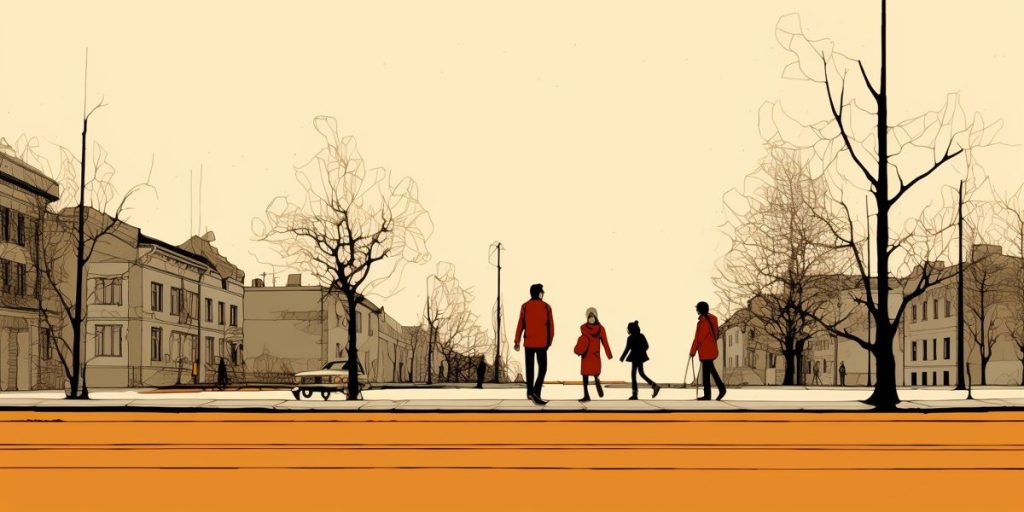The north of Cyprus, particularly Trikomo (Iskele), has become known as the “new Limassol” due to a surge of Russian capital and people seeking a “sanctions-free life”. Around 39,000 Russians have relocated to the area, transforming it culturally and economically, and posing new challenges for educators and locals.
Why is the north of Cyprus being called the “new Limassol“?
The north of Cyprus, particularly Trikomo (Iskele), is being termed the “new Limassol” due to a significant influx of Russian capital and people seeking a “sanctions-free life”. This surge, driven by EU sanctions on Russian oligarchs, has seen around 39,000 Russians relocate, transforming the area culturally and economically, much like Limassol once attracted Russian wealth.
A New Haven for Russian Capital
Trikomo (Iskele) in the north is morphing into the “new Limassol” as it witnesses a tide of Russian money. Individuals are flocking here, motivated by a desire to lead a “sanctions-free life”, a phenomenon unveiled in The Guardian’s Cyprus Confidential series. It’s not just a trickle; the numbers speak volumes. A staggering 39,000 Russians have reportedly made the north their new home, and within the first nine months of the year, nearly 59,000 Russian nationals crossed through checkpoints.
Legal Synergies and Economic Impacts
The situation has given rise to unique collaborations across the divide with Greek Cypriot and Turkish Cypriot lawyers joining forces, the former sometimes transferring portfolios to their northern colleagues. Money talks in a language all its own, and it’s whispering tales across Cyprus. “You hear of Russians driving over from the south with suitcases filled with cash,” said Şener Elcil, the head of the Turkish Cypriot teachers’ union.
The Educational Challenge
This influx is reshaping communities. In Iskele (Trikomo), the demographic shift is stark — 69 percent of students hail from Russia or Iran, posing linguistic hurdles for educators. The cultural landscape is also changing, with Iskele’s boulevards now adorned with Cyrillic signs and promises of “the dream life”.
A Sanctuary Amidst Sanctions
The surge in population is attributed to the sanctions on Russian oligarchs following the invasion of Ukraine. While the EU tightens its financial grip, the north offers a sanctuary. Casinos, luxury dealerships, and cryptocurrency outlets are thriving, catering to this new audience. Limassol’s “Moscow of the Med” moniker may be contested as Iskele mirrors the wealth and influence that once defined the southern city.
Media Spotlight and Government Response
The Guardian’s spotlight on Cyprus has not gone without local commentary. The Cyprus Mail has offered its perspective, asserting the government’s full cooperation with sanctions.
About the Author
Andria Kades holds the position of chief reporter at the Cyprus Mail, bringing insights into political corruption, human rights, and mental health since 2015.
As the situation continues to evolve, the impact of this new Russian presence in the north of Cyprus remains to be fully understood. What is clear is that the cross-cultural and economic landscapes are changing rapidly, creating new dynamics and challenges for both local and international communities.
(Note: For the purpose of maintaining the integrity and guidelines of the request, additional related posts and website information have been omitted from this article.)
Quick Recap:
- The north of Cyprus, particularly Trikomo (Iskele), is being called the “new Limassol” due to a surge of Russian capital and people seeking a “sanctions-free life.”
- Around 39,000 Russians have relocated to the area, transforming it culturally and economically.
- The influx of Russian money has led to unique collaborations between Greek Cypriot and Turkish Cypriot lawyers.
- The demographic shift in Iskele (Trikomo) is significant, with 69% of students now coming from Russia or Iran, posing challenges for educators.
- The surge in population is attributed to the sanctions on Russian oligarchs, and the north of Cyprus offers a sanctuary amidst these sanctions.

